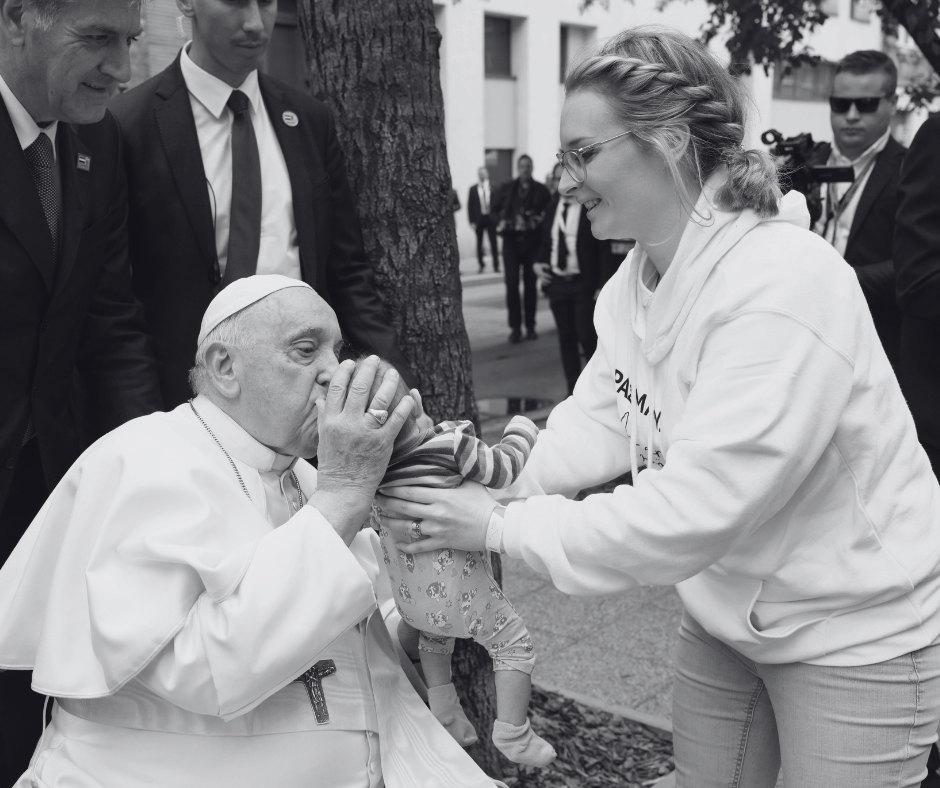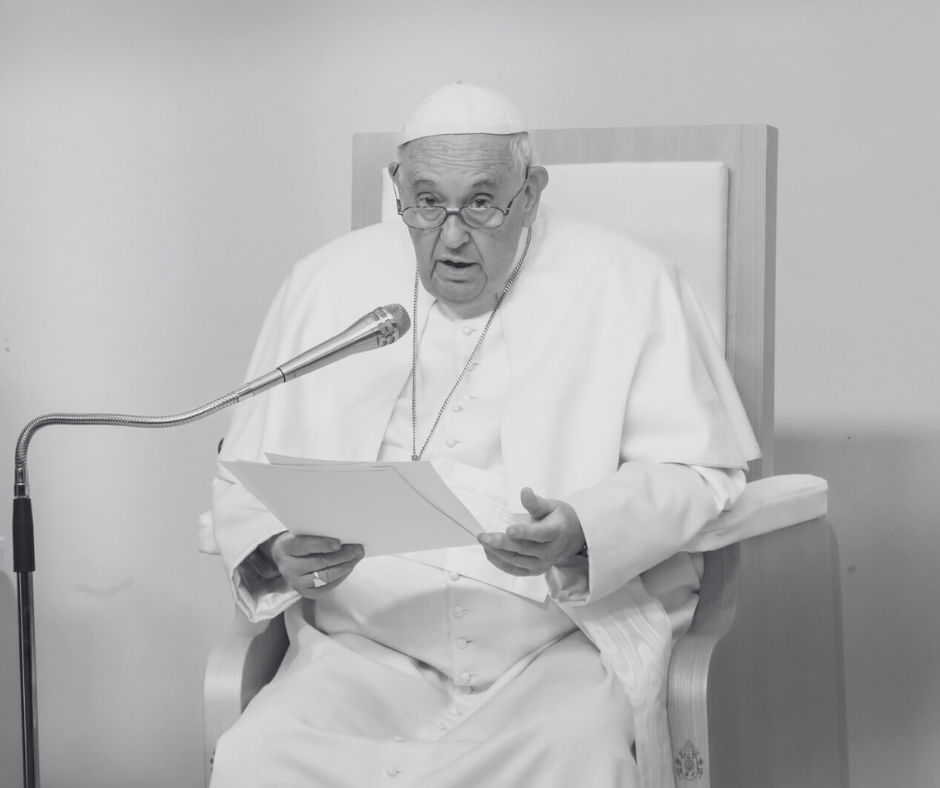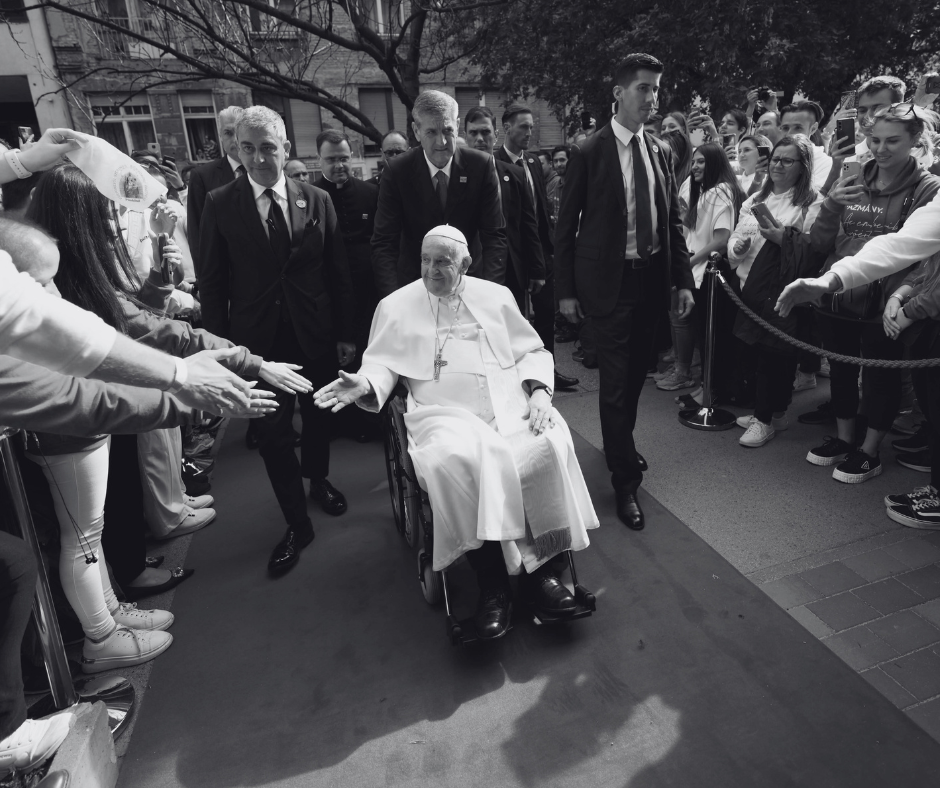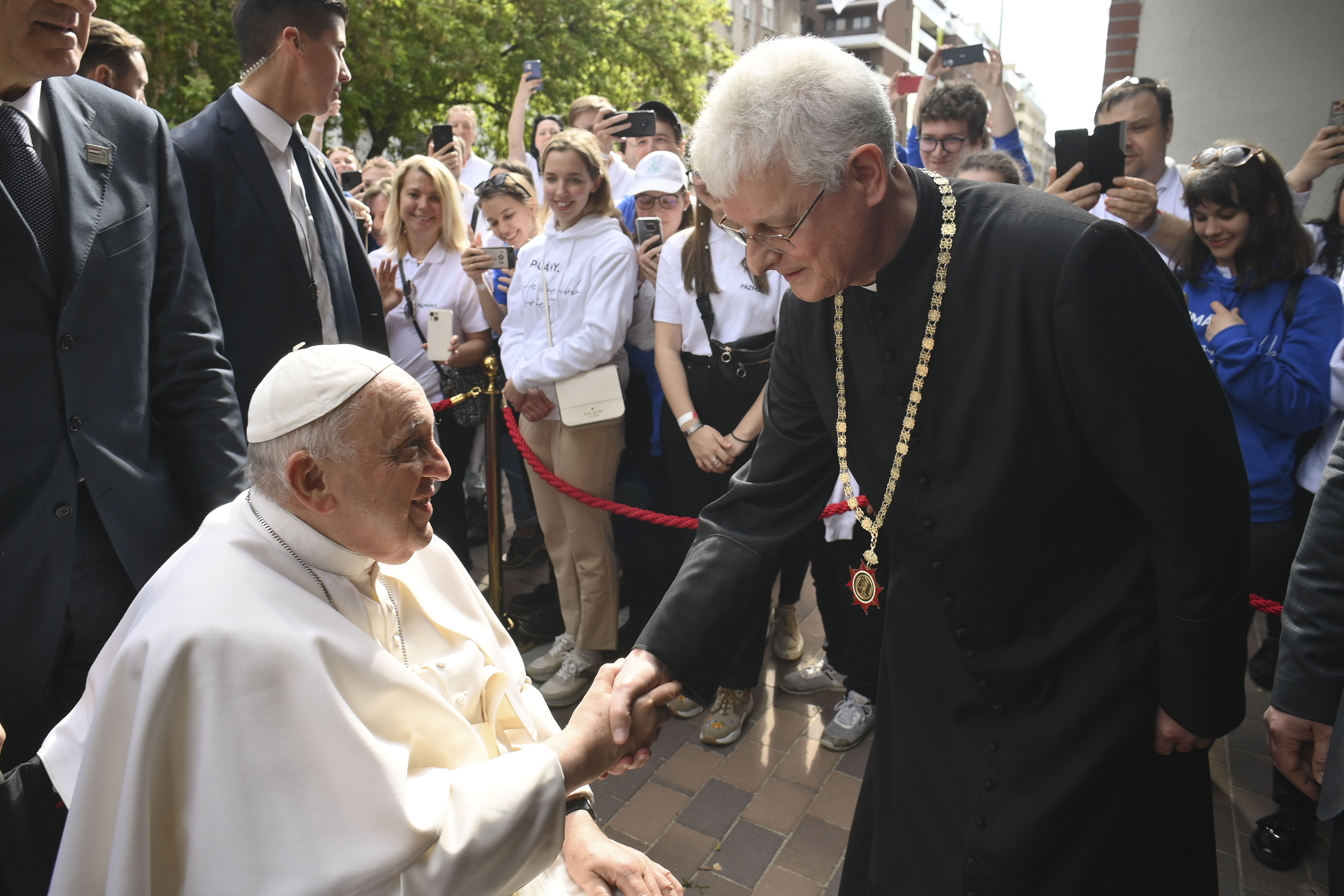
When Pope Francis stood before us, he spoke not only as the Supreme Pontiff, the Bishop of Rome, but as a gentle and fatherly shepherd. In his address, he evoked the image of the Danube — that great river which connects, nourishes, and embraces. Through this profound metaphor, he revealed the true nature of culture: a current of wisdom that does not dominate but gives life; that does not possess but understands; that does not isolate but connects.
Drawing upon the reflections of Romano Guardini, the Holy Father reminded that technological advancement — which we both shape and by which we are shaped — can easily become a force of domination rather than of edification. He urged us to pursue science with humility, always in the service of human dignity, the common good, and all of creation. He posed to us, researchers in bionics and informatics, a question both poetic and piercingly real: “Can life remain alive within the system of machines?”

Since that moment, the Holy Father’s visit has continued to echo in our hearts, especially through two guiding principles he entrusted to us: “Know yourself” and “The truth will set you free.” Self-knowledge, the acceptance of our limitations, and the pursuit of truth are not merely intellectual endeavors, but a way of life — one that unites technical expertise with human wisdom, and progress with humble service.
We recall how Pope Francis gave thanks for the openness of our university community — for the way we welcome students from diverse cultures, and for the sense of shared responsibility we bring to our research and teaching. He encouraged us to remain people of wonder, contemplation, and generosity — seekers of truth who walk the path of loving service rather than that of possession.
Though Pope Francis no longer walks this earthly pilgrimage among us, his words remain with us: in the walls of our lecture halls, in the quiet of our laboratories, in the curiosity of our students’ eyes, and in the commitment of our faculty. We carry forward his spirit whenever we unite scientific inquiry with reverence for human dignity, and whenever we place technological advancement at the service of a just, sustainable, and compassionate society.

As we now commend him to the eternal embrace of our Heavenly Father, it is not sorrow that fills our hearts, but gratitude and renewed dedication. We give thanks for his visit, for his words, and for his encouragement — and we pledge to faithfully preserve and transmit his intellectual and spiritual legacy.
Thank you, Holy Father, for coming among us. Thank you for guiding us along the path of authentic science, truth-seeking, and service to humanity. We pray for you and ask for your heavenly intercession as our university community continues its mission in the light of faith and reason.
Photos: Pázmány ITK and Magyar Kurír



